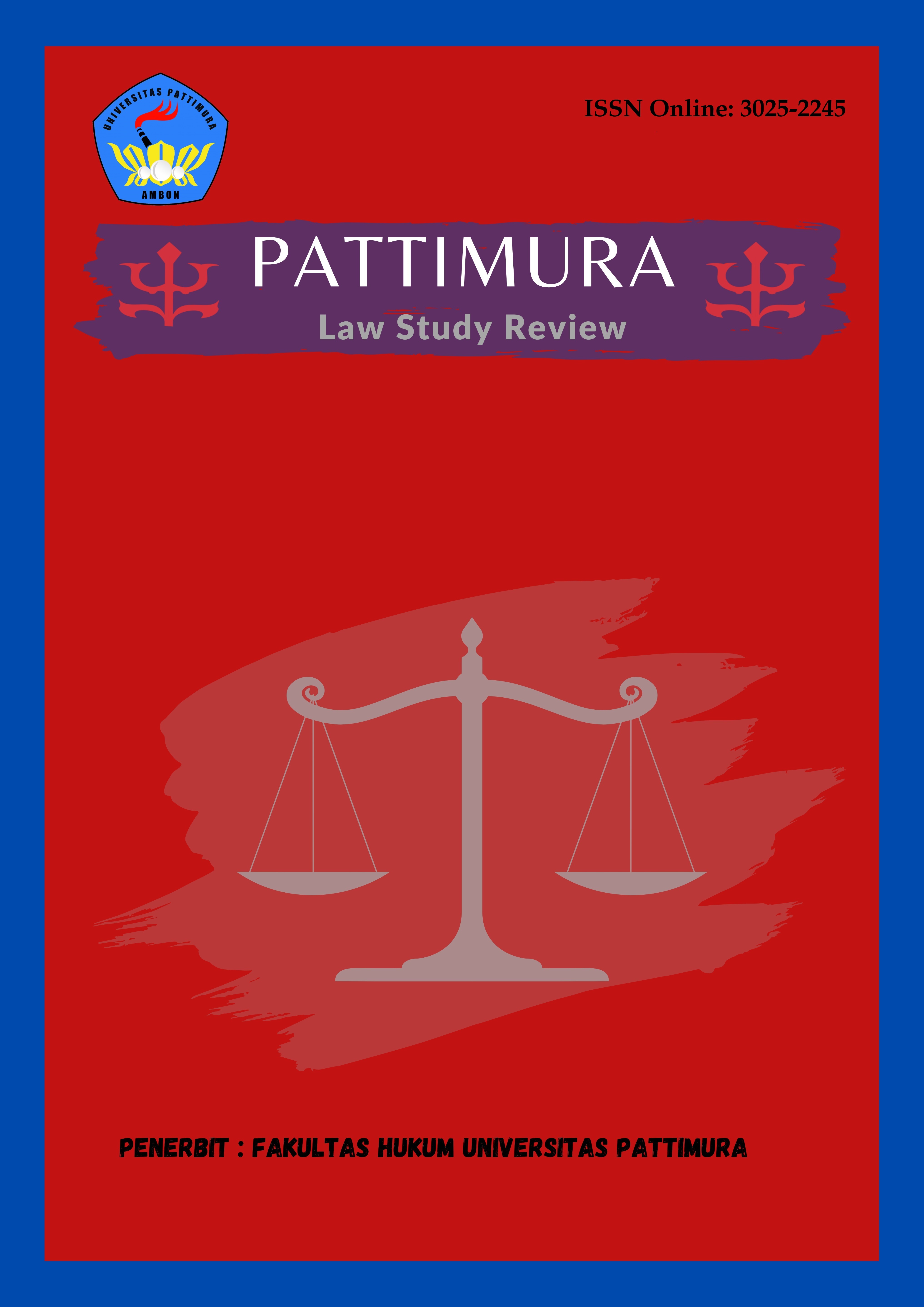Tanggung Jawab Pemberi Kerja Atas Kewajiban Menyediakan Transportasi Bagi Pekerja
Abstract
As an employer or entrepreneur, Article 76 paragraph (4) of the Manpower Law states that employers are obliged to provide pick-up and drop-off transportation for female workers who go to and from work between 23.00 and 05.00. In fact, PT Indomarco Prismatama does not provide transportation for workers. Normative juridical research methods and the nature of descriptive analytical writing using a statutory approach and a conceptual approach The research results showed that: Companies or employers are individuals, entrepreneurs, legal entities, or other bodies that employ workers by paying wages or remuneration and are obliged to be responsible for realizing workers' rights, especially providing shuttle transportation for workers who work late at night between 23.00 and 05.00. PT Indomarco Prismatama as an employer is responsible for fulfilling its obligations towards workers' rights by providing transportation for workers. In fact, it was not implemented so that the company is absolutely responsible for all the consequences it causes because it does not carry out its obligations, namely providing transportation for workers. The legal consequences if PT Indomarco Prismatama does not prepare transportation for its employees, namely that the security and safety of employees is not guaranteed, can cause undesirable things and then legal consequences for the company itself, namely because the company does not comply with the law, then the company will be given sanctions, both administrative sanctions and criminal sanctions. Apart from that, as a result of this incident, the legal rules that had been established did not function or did not run optimally.
Downloads
References
Buku
Adolf Huala, (2006). Dasar-dasar Hukum Kontrak Internasional, Refika Aditama, Bandung.
Asyadie Zaeni, (2004). Hukum Kerja, Sinar Grafika, Jakarta.
Harahap Yahya, (1986). Segi-Segi Hukum Perjanjian, Cet. II, Alumni, Bandung.
Kelsen Hans, (2006). Teori Hukum Murni, Dasar-Dasar Ilmu Hukum Normatif, Usamedia dan Nuansa, Bandung.
Maimun, (2007). Hukum Ketenagakerjaan Suatu Pengantar, PT. Pradnya Paramita, Jakarta.
Prodjodikoro Wirjono, (1981). Asas-Asas Hukum Perjanjian, PT. Sumur, Bandung.
Soebekti R. dan Tjitrisadibio R. (1976). KUHPerdata, Pradya Paramita, Cetakan 8, Jakarta.
Jurnal
Asmara Romi & Laila M. Rasyid, (2013). “Perlindungan Hukum Terhadap Anak Perempuan Korban Kejahatan Kesusilaan”, Jurnal Ilmu Hukum, Fakultas Hukum Universitas Riau, Vol. 3 No. 2 2013.
Maulida Qadisyah, dkk. (2023). Peran UMKM Dalam Pembangunan dan Kesejahteraan Masyarakat di Kabupaten Deli Serdang, Jurnal Manajemen, Ekonomi, Kewirausahaan, dan Investasi, Vol.1, No. 2. Tahun 2023.
Rizal Octaviansyah Arifin, (2022). Perlindungan Hukum Terhadap Pekerja di Pt X yang Jam Kerjanya Melebihi dari Aturan Menurut Undang Undang No 13 Tahun 2003 Tentang Ketenagakerjaan Dihubungkan Dengan Hak Asasi Manusia, Skripsi Bidang Ilmu Hukum, Universitas Pasundan, Pasundan, http://repository.unpas.ac.id/57270/3/8%20bab%202.pdf 2022.
Rr. Lulus Prapti NSS, dkk, (2015). Analisis Dampak Pembangunan Infrastruktur Jalan Terhadap Pertumbuhan Usaha Ekonomi Rakyat di Kota Semarang, Jurnal Dinamika Sosial Budaya, Vol 17, No 1 2015.
Copyright (c) 2025 Vadila Efendi, Sarah Selfina Kuahaty, Sabri Fataruba (Author)

This work is licensed under a Creative Commons Attribution-NonCommercial 4.0 International License.
Authors who publish their manuscripts in this Journal agree to the following conditions:
- The copyright in each article belongs to the author, as well as the right to patent.
- Authors are able to enter into separate, additional contractual arrangements for the non-exclusive distribution of the journal's published version of the work (e.g., post it to an institutional repository or publish it in a book), with an acknowledgment of its initial publication in this journal.
- Authors are permitted and encouraged to post their work online (e.g., in institutional repositories or on their website) prior to and during the submission process, as it can lead to productive exchanges, as well as earlier and greater citation of published work.
- Authors have the right to self-archiving of the article (Author Self-Archiving Policy)













